Related Research Articles

The University of California, San Diego is a public land-grant research university in San Diego, California, United States. Established in 1960 near the pre-existing Scripps Institution of Oceanography, UC San Diego is the southernmost of the ten campuses of the University of California, and offers over 200 undergraduate and graduate degree programs, enrolling 33,096 undergraduate and 9,872 graduate students. The university occupies 2,178 acres (881 ha) near the coast of the Pacific Ocean, with the main campus resting on approximately 1,152 acres (466 ha).
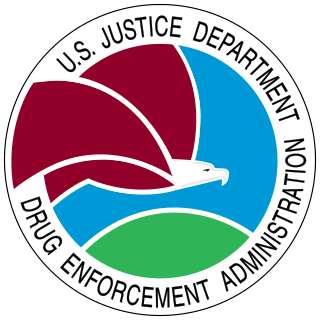
The Drug Enforcement Administration is a United States federal law enforcement agency under the U.S. Department of Justice tasked with combating illicit drug trafficking and distribution within the U.S. It is the lead agency for domestic enforcement of the Controlled Substances Act, sharing concurrent jurisdiction with the Federal Bureau of Investigation, the U.S. Immigration and Customs Enforcement, and U.S. Customs and Border Protection. However, the DEA has sole responsibility for coordinating and pursuing U.S. drug investigations both domestically and internationally.

The Scripps Institution of Oceanography is the center for ocean and Earth science at the University of California, San Diego.
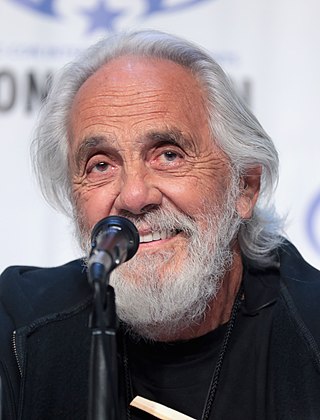
Thomas B. Kin Chong is a Canadian comedian, actor, musician and activist. He is known for his role/inspiration in the marijuana industry, his marijuana-themed Cheech & Chong comedy albums and movies with Cheech Marin, and playing the character Leo on Fox's That '70s Show. He became a naturalized United States citizen in the late 1980s.
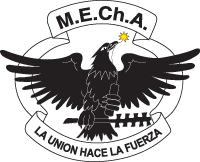
M.E.Ch.A. is a US-based organization that seeks to promote Chicano unity and empowerment through political action. The acronym of the organization's name is the Chicano word mecha, which is the Chicano pronunciation of the English word match and therefore symbolic of a fire or spark; mecha in Spanish means fuse or wick. The motto of MEChA is 'La Union Hace La Fuerza'.
In the United States, a special agent is an official term used to refer to an investigator or detective for a federal or state government or independent agency, who primarily serves in criminal investigatory positions. Additionally, many federal and state special agents operate in "criminal intelligence" based roles as well. Within the U.S. federal law enforcement system, dozens of federal agencies employ federal law enforcement officers, each with different criteria pertaining to the use of the titles Special Agent and Agent. These titles are also used by many state level agencies to refer to their personnel.

In the United States, a Joint Terrorism Task Force (JTTF) is a locally-based multi-agency partnership between various federal, state, and local law enforcement agencies tasked with investigating terrorism and terrorism-related crimes, led by the Federal Bureau of Investigation and U.S. Department of Justice. The first JTTFs were established before the September 11 attacks, with their numbers increasing dramatically in the years after.
Oscar Danilo Blandón Reyes is a Nicaraguan born drug trafficker who is best known as one of the main subjects of the 1996 newspaper series "Dark Alliance" by reporter Gary Webb.

The Preuss School, Preuss School UCSD, or Preuss Model School is a coeducational college-preparatory charter day school established on a $14 million campus situated on the University of California San Diego (UCSD) campus in the La Jolla community of San Diego, California. The school was named in recognition of a gift from the Preuss Family Foundation and is chartered under the San Diego Unified School District (SDUSD).
The 2005 Quran desecration controversy began when Newsweek's April 30, 2005, issue contained a report asserting that United States prison guards or interrogators had deliberately damaged a copy of the Quran. A week later, The New Yorker reported the words of Pakistani politician Imran Khan: "This is what the U.S. is doing—desecrating the Quran." This incident caused upset in parts of the Muslim world.
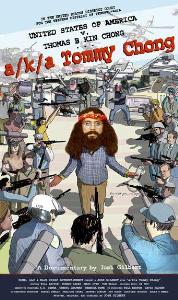
a/k/a Tommy Chong is a 2006 documentary film written, produced, and directed by Josh Gilbert, that chronicles the Drug Enforcement Administration raid on comedian Tommy Chong's house and his subsequent jail sentence for trafficking in illegal drug paraphernalia. He was sentenced to nine months in federal prison. DEA agents raided Chong's Pacific Palisades, California home on the morning of February 24, 2003. The raid was part of Operation Pipe Dreams and "Operation Headhunter," which resulted in raids on 100 homes and businesses nationwide that day and indictments of 55 individuals.

Flossie Wong-Staal was a Chinese-American virologist and molecular biologist. She was the first scientist to clone HIV and determine the function of its genes, which was a major step in proving that HIV is the cause of AIDS. From 1990 to 2002, she held the Florence Riford Chair in AIDS Research at the University of California, San Diego (UCSD). She was co-founder and, after retiring from UCSD, she became the chief scientific officer of Immusol, which was renamed iTherX Pharmaceuticals in 2007 when it transitioned to a drug development company focused on hepatitis C and continued as chief scientific officer.

Birch Aquarium is an aquarium and the public outreach center for Scripps Institution of Oceanography at the University of California, San Diego. Accredited by the Association of Zoos and Aquariums, Birch Aquarium has an annual attendance of more than 439,000, including more than 40,000 school children, and features more than 3,000 animals representing 380 species. The hilltop site provides views of the Scripps Institution of Oceanography campus and the Pacific Ocean. The mission of the aquarium reads: "As the public outreach center for Scripps Institution of Oceanography at UC San Diego, Birch Aquarium features the groundbreaking work of Scripps Oceanography and UC San Diego scientists through innovative exhibits and events. More than just an aquarium, Birch Aquarium offers hands-on learning opportunities and climate-based programming to 40,000-plus K-12 students each year on site, in schools and in the field.".

The Koala is a satirical comedy college paper. In its current form, it exists as two notable unaffiliated publications, with one that was distributed quarterly on the campus of University of California San Diego, and monthly on the campus of San Diego State University. The publication at UCSD was one of a handful of campus newspapers partly or entirely funded by the Associated Students of UCSD, until a decision by AS UCSD to defund all 13 student media outlets. There have been recent efforts to revitalize the original branch. SDSU's branch of The Koala at one point operated within SDSU Associated Students as a Recognized Student Organization (RSO) until that status was revoked in 2007. The original branch of The Koala was founded at UCSD in 1982, but the details of its origins are uncertain. The composition of the paper consists of artwork, articles, personals, and lists similar to David Letterman's Top Ten List.
Marilyn Gist Farquhar was a pathologist and cellular biologist, Professor of Cellular and Molecular Medicine and Pathology, as well as the chair of the Department of Cellular and Molecular Medicine at the University of California, San Diego School of Medicine, who previously worked at Yale University from 1973 to 1990. She has won the E. B. Wilson Medal and the FASEB Excellence in Science Award. She was married to Nobel Laureate George Emil Palade from 1970 to his death in 2008. Her research focuses on control of intracellular membrane traffic and the molecular pathogenesis of auto immune kidney diseases. She has yielded a number of discoveries in basic biomedical research including: mechanisms of kidney disease, organization of functions that attach cells to one another, and mechanisms of secretions.
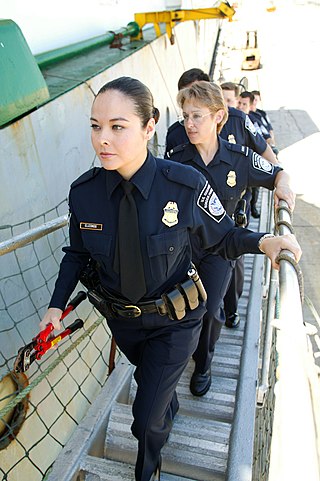
The federal government of the United States empowers a wide range of federal law enforcement agencies to maintain law and public order related to matters affecting the country as a whole.
Operation Sudden Fall was a 2008 joint operation between the United States Drug Enforcement Administration (DEA) and San Diego State University (SDSU) campus police investigating drug abuse in the College Area of San Diego, California. It was the largest campus drug bust in San Diego County history and one of the largest college drug busts in U.S. history.
Kenneth L. "Ken" Bowles was an American computer scientist best known for his work in initiating and directing the UCSD Pascal project, when he was a professor of computer science at the University of California, San Diego (UCSD).

Adelanto Detention Facility is a privately operated immigration detention center in Adelanto, San Bernardino County, California. Owned and operated by the GEO Group, it consists of two separate facilities: East, which was an existing prison purchased in June 2010 from the City of Adelanto with a capacity of about 600 inmates, and the newly built West expansion completed in August 2012 with another 700 beds. After an additional expansion in 2015, the facility's capacity houses up to 1,940 immigrant detainees of all classification levels, with the average stay of 30 days.

This is a list of protests that took place in San Diego County, California following the murder of George Floyd that took place on May 25, 2020 in Minneapolis, Minnesota, after police officer Derek Chauvin knelt on his neck for 9 minutes and 29 seconds. These events were created to fight for justice for George Floyd and other Black community members who suffer from Police brutality. These demonstrations resulted in a number of policy changes, namely the ban of the cartoid neck restraints use in San Diego County and a city-wide independent review board that would review police practices.
References
- 1 2 "Student's ordeal: How was Daniel Chong lost in DEA detention?", MSNBC, May 4, 2012
- 1 2 "California Man’s ‘Drug Holiday’ Becomes Four-Day Nightmare in Holding Cell" Archived 2017-03-10 at the Wayback Machine , New York Times, May 2, 2012
- ↑ Watson, Julie, and Freking, Kevin, "Federal lawmaker: DEA debacle suggests breakdown" Archived 2012-05-03 at the Wayback Machine , San Francisco Chronicle, May 3, 2012
- 1 2 Stan Wilson, Daniel Chong, forgotten in DEA cell, settles suit for $4.1 million Archived 2018-12-29 at the Wayback Machine , CNN (July 30, 2013).
- 1 2 "Letter to DEA from Rep. Duncan Hunter dated May 3, 2012" (PDF). Archived (PDF) from the original on May 22, 2012. Retrieved May 5, 2012.
- 1 2 3 4 "UCSD student's 5-day ordeal in DEA jail sparks outrage, anger" Archived 2012-05-07 at the Wayback Machine , Los Angeles Times, May 3, 2012
- ↑ "Man resorts to drinking urine after being forgotten in jail". MSN. May 2, 2012. Archived from the original on May 3, 2012. Retrieved 2012-05-03.
- 1 2 3 McDonald, Jeff, "Man abandoned in DEA cell steps forward" Archived 2012-05-02 at the Wayback Machine , San Diego Union Tribune, May 1, 2012
- ↑ Monica Garske (2012-04-29). "Detainee Forgotten at DEA Office: Law Enforcement Source". NBC San Diego. Archived from the original on 2012-05-06. Retrieved 2012-05-05.
- ↑ "San Diego Man Forgotten In Cell Says He Drank Urine". KBPS. 2012-05-02. Archived from the original on 2012-05-06. Retrieved 2012-05-05.
- 1 2 3 Sarah, Grieco; Devine, Rory (May 2, 2012). "DEA Ignored All My Cries: Student". NBC San Diego. Archived from the original on 2012-06-18. Retrieved 2012-05-03.
- ↑ Campbell, Andy (May 2, 2012). "Daniel Chong Drank Urine To Survive 5 Days In Holding Cell Without Food, Water". Huffington Post. Archived from the original on 2012-05-04. Retrieved 2012-05-03.
- 1 2 Alan, Duke (May 2, 2012). "Student forgotten in cell for 5 days will sue DEA". CNN. Archived from the original on July 15, 2014. Retrieved August 12, 2012.
- ↑ Wilson, Stan (July 31, 2013). "Daniel Chong, forgotten in DEA cell, settles suit for $4.1 million". CNN. Archived from the original on 1 August 2013. Retrieved 31 July 2013.
- ↑ "Summary of OIG Investigative Findings Regarding the Detention by The Drug Enforcement Administration of Daniel Chong" (PDF). U.S. Department of Justice: Office of the Inspector General. July 2014. Archived (PDF) from the original on 2021-04-15. Retrieved 2021-07-19.
- ↑ "Protest Over DEA's Treatment Of Daniel Chong – Monday, May 7th". The 420 Times. 2012-05-04. Archived from the original on 2012-05-07. Retrieved 2012-05-05.
- ↑ "Student forgotten in jail: UCSD students denounce treatment" Archived 2012-05-13 at the Wayback Machine , Los Angeles Times, May 7, 2012
- ↑ Julie, Watson (May 2, 2012). "Student left in cell for 4 days files $20M claim". San Francisco Chronicle. Archived from the original on 2012-05-03. Retrieved 2012-05-03.
- ↑ McDonald, Jeff (May 2, 2012). "Abandoned DEA detainee seeks $20 million". San Diego Union-Tribune. Archived from the original on August 12, 2012. Retrieved August 12, 2012.
- ↑ McDonald, Jeff (July 9, 2014). "Errors cited in DEA detention case". San Diego Union Tribune. Archived from the original on 15 July 2014. Retrieved 14 July 2014.
- ↑ Dana Ford, DEA reprimands agents after student forgotten in cell for 5 days Archived 2015-05-29 at the Wayback Machine , CNN (May 5, 2015).
- ↑ Timothy M. Phelps, Officials criticize DEA's light punishment of agents who forgot man in cell for 5 days Archived 2018-12-29 at the Wayback Machine , Los Angeles Times (May 5, 2015).
- 1 2 3 "Officials criticize DEA's light punishment of agents who forgot man in cell for 5 days". Los Angeles Times . 5 May 2015. Archived from the original on 9 May 2015. Retrieved 11 May 2015.
- ↑ "Ted Lieu Wants Civil Rights investigation in Daniel Chong DEA Case". NBC News . Archived from the original on 2019-04-25. Retrieved 2019-10-07.
- ↑ "Student left in DEA cell to get $4 million from US : Stltoday". Archived from the original on 2013-07-31. Retrieved 2020-02-20.
- ↑ "Student left in DEA cell to get $4 million from US". Associated Press, cited by St. Louis Post-Dispatch. July 30, 2013. Archived from the original on July 31, 2013. Retrieved 31 July 2013.